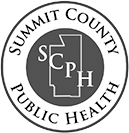Stormwater runoff is generated from rain and snowmelt events that flow over land or impervious surfaces, such as paved streets, parking lots, and building rooftops, and does not soak into the ground. The runoff picks up pollutants like trash, chemicals, oils, and dirt/sediment that can harm our rivers, streams, lakes, and coastal waters.The Environmental Protection Agency (EPA) is responsible for protecting these water resources and developed a stormwater program using the provisions under the Clean Water Act. The program was implemented in two phases:
Phase 1 (began 1990) This phase looks at stormwater runoff from medium and large municipal separate storm sewer systems (MS4s) that generally served populations of 100,000 people or greater.
Phase 2 (began 1999) This phase looks at discharges from small MS4 locations in urbanized areas. The EPA created six requirements for the Phase 2 program; one of the requirements is to develop an Illicit Discharge Detection and Elimination (IDDE) program.
Illicit discharges are considered “illicit” because MS4s are not designed to accept, process, or discharge non-storm water wastes. Common illicit discharges are from failing sewage treatment systems (STS). Locating failing STS is one of the main goals of the stormwater program at SCPH because malfunctioning HSTS are one of the largest contributors to local water pollution.
To detect illicit discharges, dry weather screening is performed when there has been at least seventy-two hours without rainfall. If the outfall is found to be flowing during dry weather screening, it will be sampled for E.coli. If the E.coli level exceeds 1030 CFU/100mL, further investigation of the area is performed to identify the potential sources of E.coli which may include inspections of area septic systems.
SCPH is contracted with the following communities to perform their dry weather screening:
| City of Barberton |
Bath Township |
Boston Township |
|
Village of Boston Heights |
Village of Clinton |
Copley Township |
|
Coventry Township |
City of Green |
City of Hudson (designated portion) |
|
Village of Lakemore |
City of Mogadore | City of Munroe Falls |
| City of New Franklin | Northfield Ctr Township | City of Norton |
| Village of Reminderville | Richfield Township | Village of Silver Lake |
| Springfield Township | Summit County Metroparks | City of Tallmadge |
| Twinsburg Township |
SCPH is contracted with Northeast Ohio Regional Sewer District to perform the dry weather screening for the following communities:
|
City of Hudson (designated portion) |
City of Macedonia | Village of Northfield |
| Village of Richfield | Sagamore Hills Township |
First Cycle Summary (2009-2013) SCPH screened over 2,500 outfalls between 2009 and 2013 and had approximately 450 outfall samples tested. In total, 76 stormwater nuisances were identified and investigated throughout the county.
Second Cycle (2014 – 2020) The second cycle of the Phase II stormwater outfall screening began in 2014. Since 2014, Summit County Public Health (SCPH) has screened 4,014 outfalls and sampled 525 as part of the second screening cycle. Of the 525 outfalls that were sampled, 91 were found to be a nuisance.
IDDE Hotline If you notice an illicit discharge in your community, please call (330) 926-5600 to report it.
